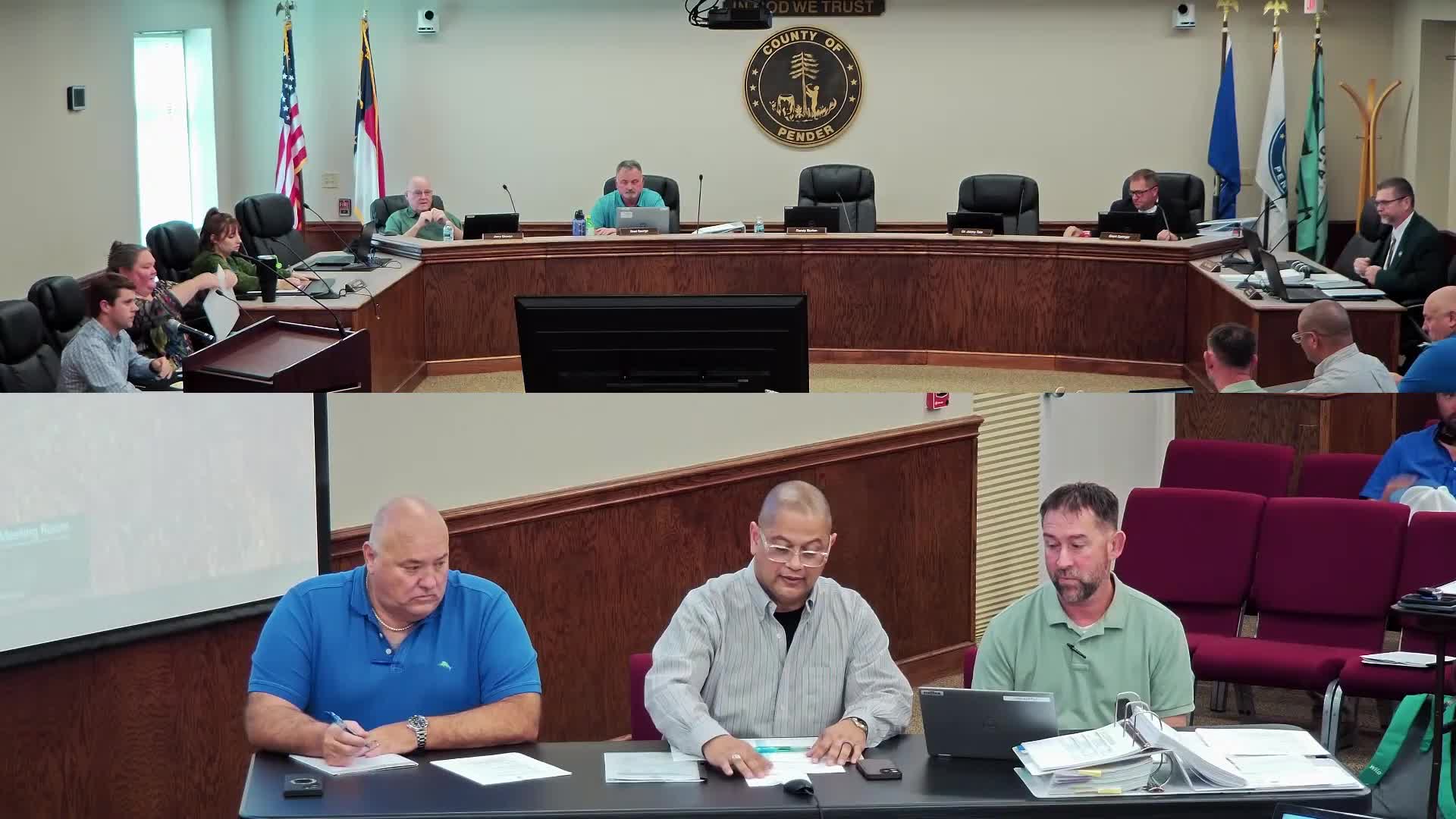Article not found
This article is no longer available. But don't worry—we've gathered other articles that discuss the same topic.
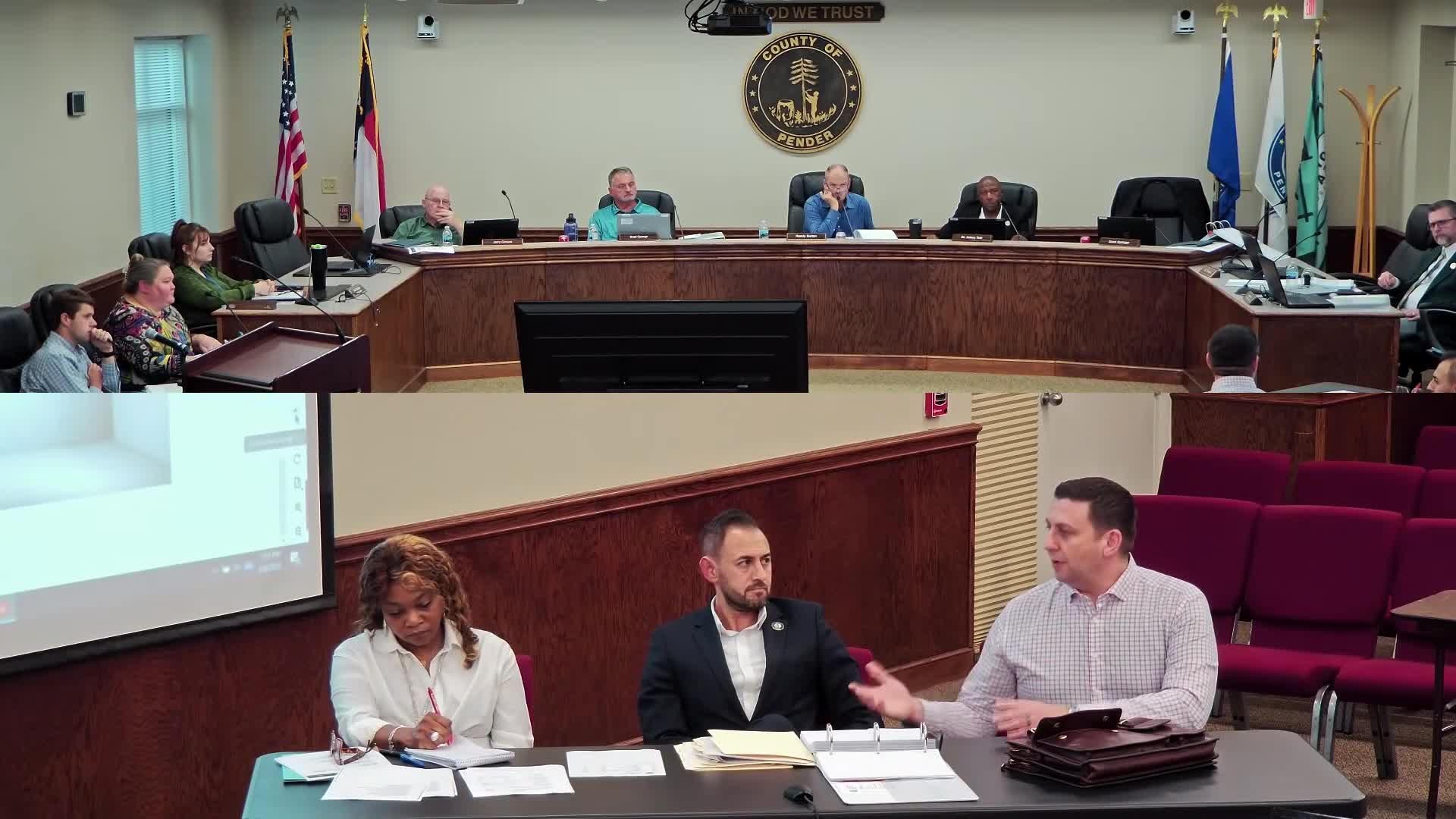
Hazard mitigation update: county beaver management program continues, staff emphasize targeted debris removal and drainage work
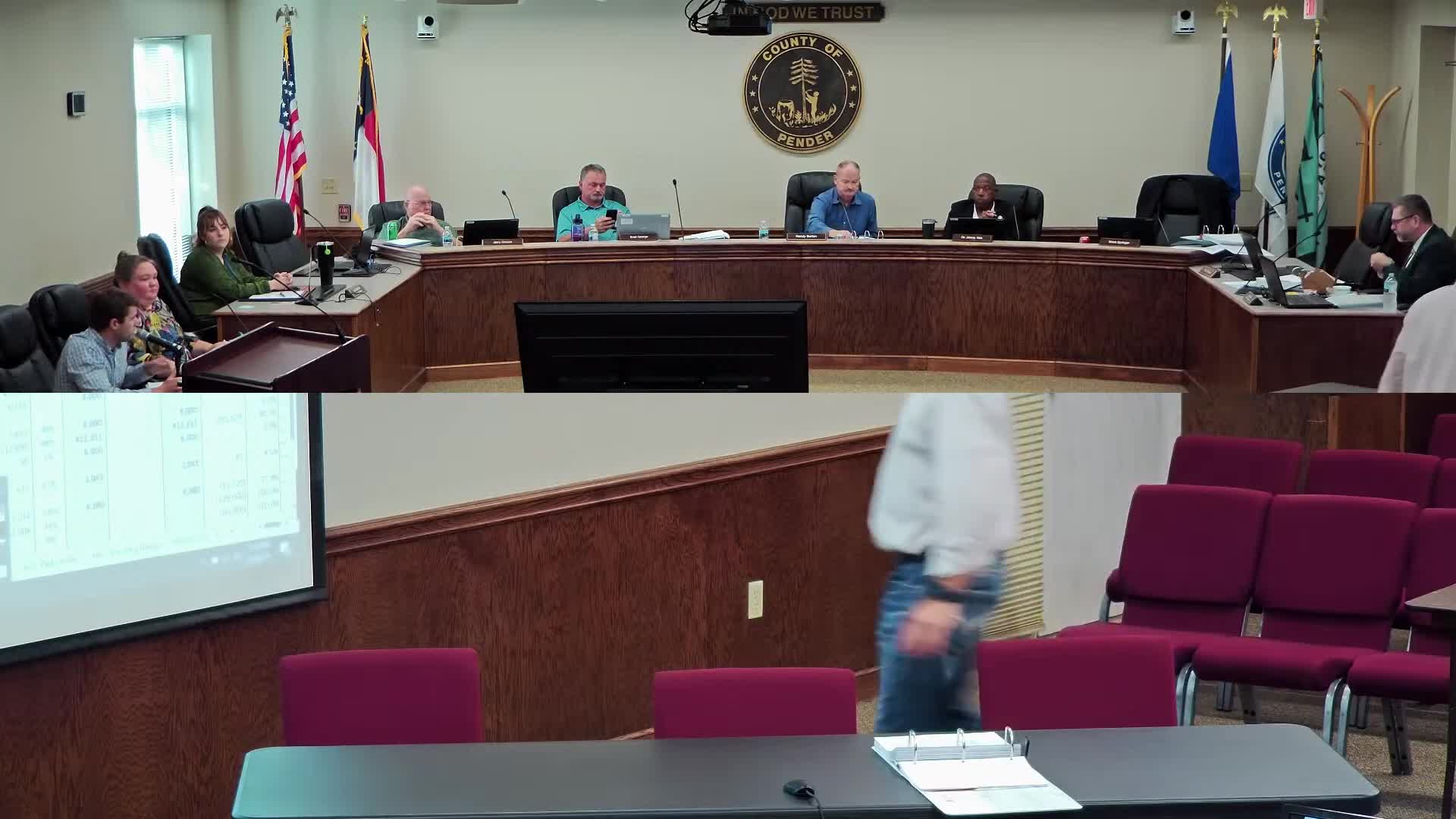
Facilities and fleet managers outline steady operating budgets; commissioners ask to re‑examine vehicle replacement, GPS and custodial pay
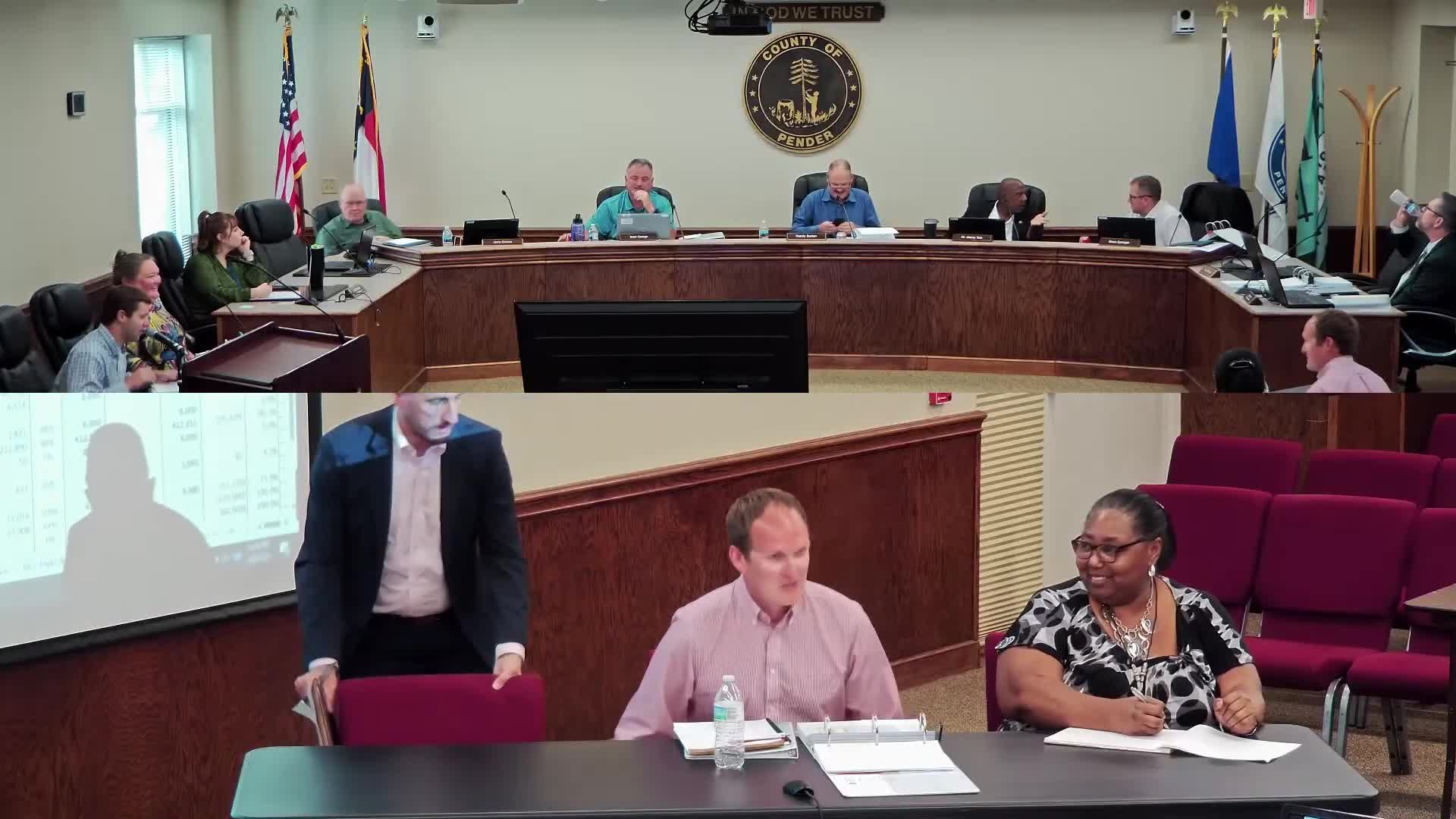
Pender County parks: Hampstead Kiwanis phase work, Central Pender opening and Willard area park interest
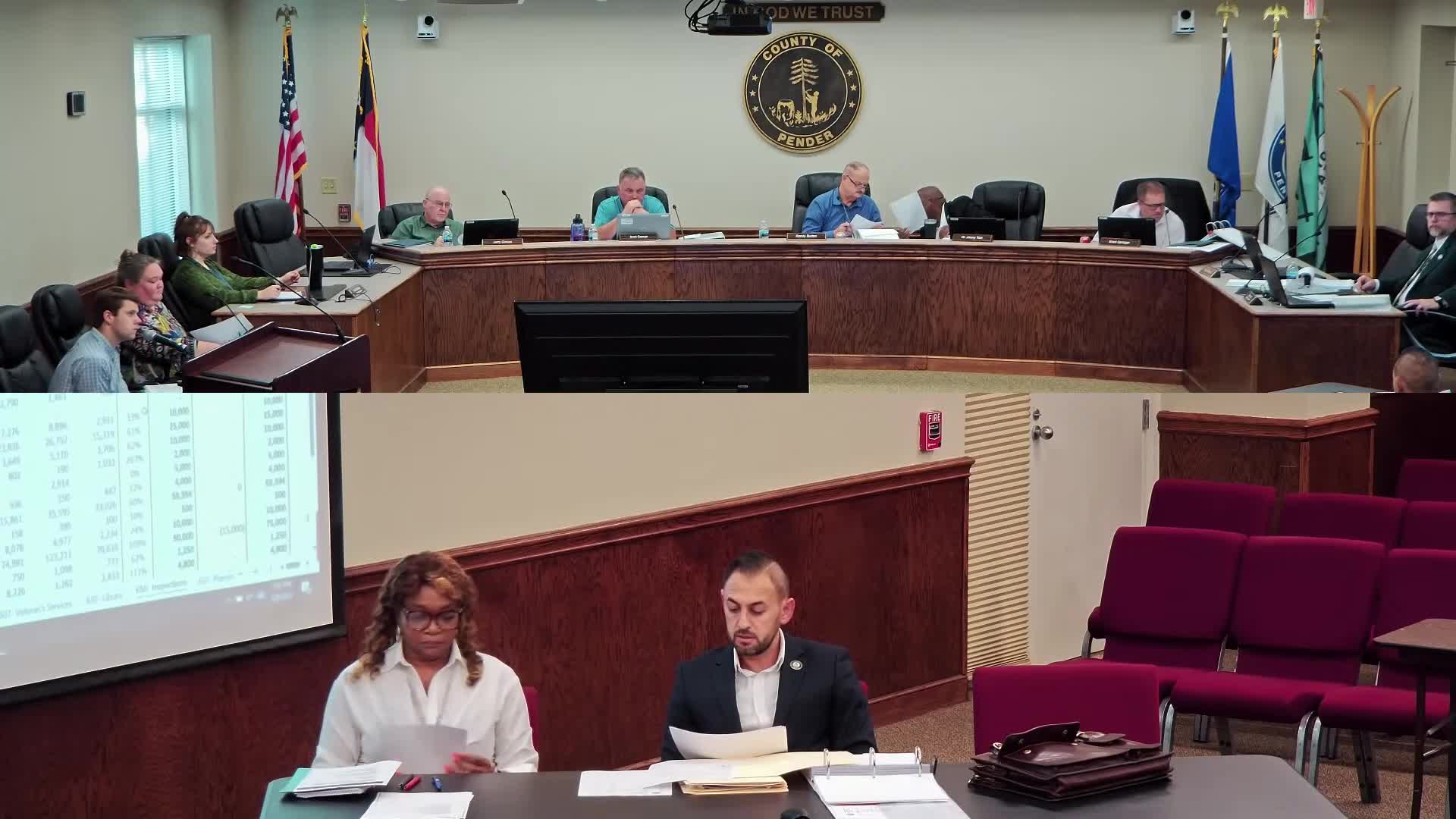
Inspections department seeks IT analyst, permit‑tech reclassifications and a customer‑facing annex overhaul
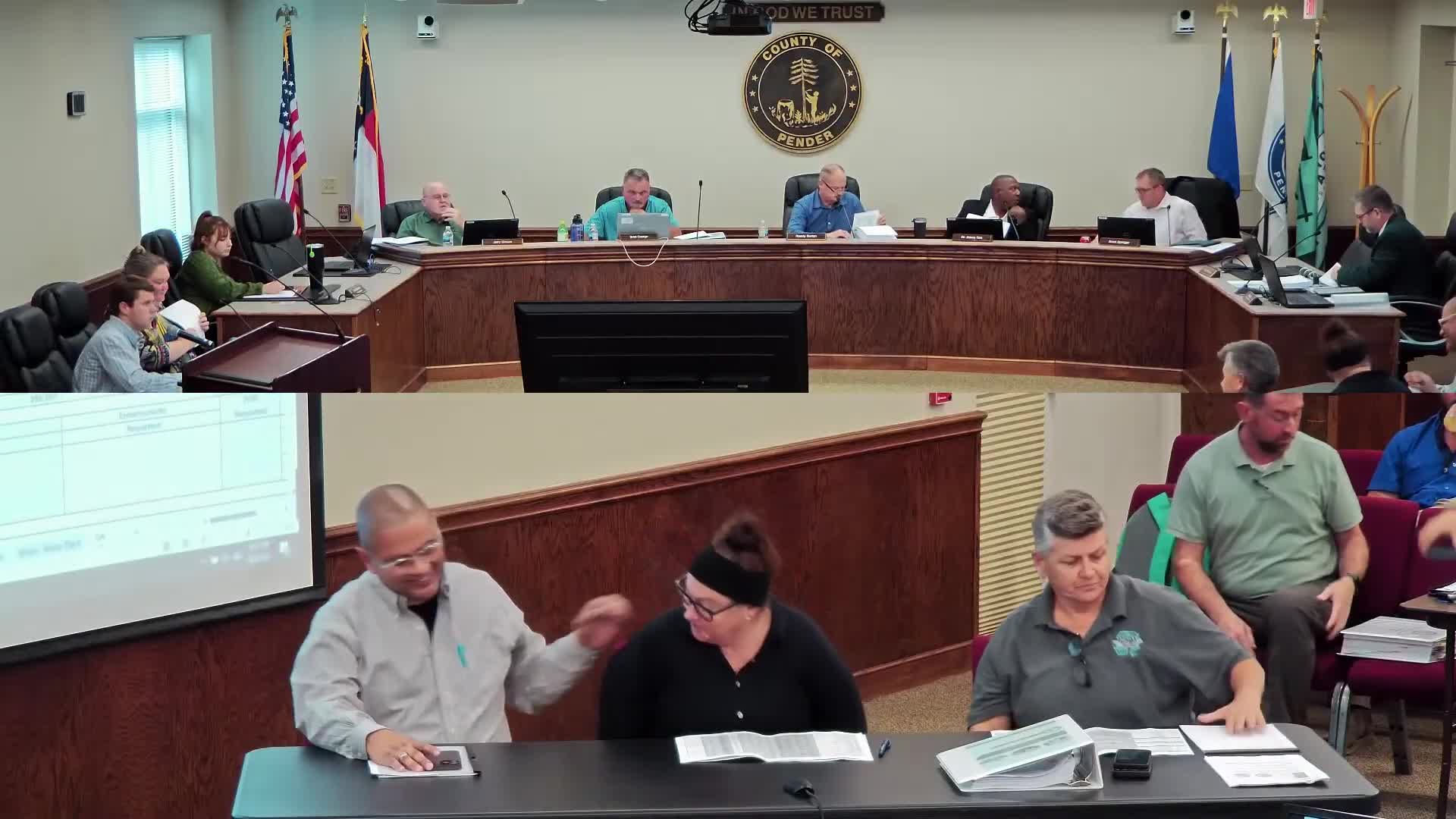
Pender County moves to make Solid Waste a standalone department, proposes site upgrades and security
